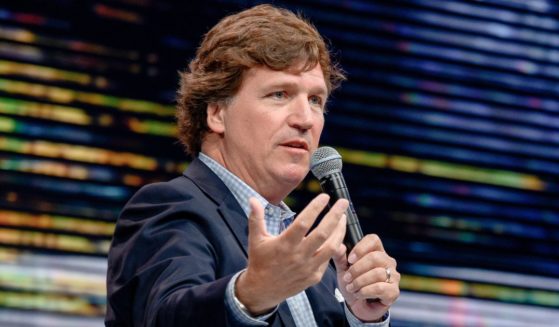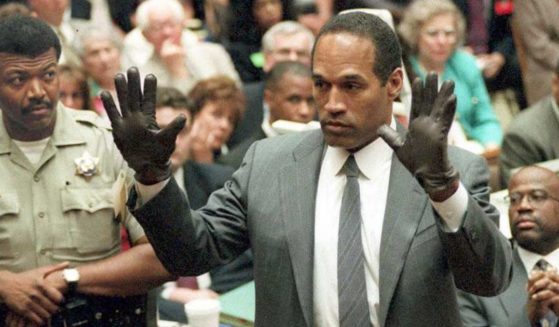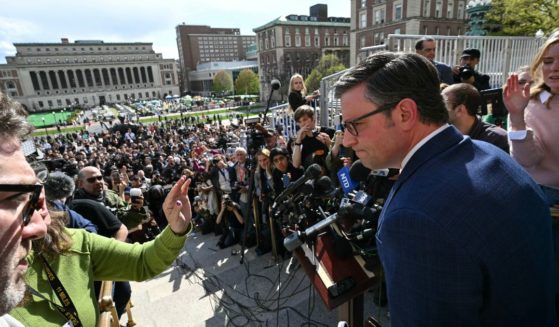Biden OKs Amazon 'Radar' That Will Let Company See What You Do in Bed
George Orwell’s classic novel “1984” was so eerily prescient that it’s almost cliché to cite it now — but “Orwellian” is the only way to describe a new device that will let Amazon know exactly what you’re doing in bed.
The Biden administration’s Federal Communications Commission granted the e-commerce behemoth permission to use radio waves for “capturing motion in a three-dimensional space” in a new kind of device.
This gives Amazon the ability to digitally map and track even the slightest movements in a room — and the company specifically conceived it for use in the bedroom.
According to Amazon’s June 22 filing for the necessary waiver, the tech company hoped to sell a new device that it claimed would “estimate sleep quality based on movement patterns” by using “Radar Sensor” technology.
“By capturing motion in a three-dimensional space, a Radar Sensor can capture data in a manner that enables touchless device control,” the filing said.
“As a result,” the waiver request continued, “users can engage with a device and control its features through simple gestures and movements. Facilitating touchless device control could have a substantial societal impact by greatly enhancing the accessibility of everyday devices.”
All the device would need is a power source and little or no interaction, a fact that the company touted as a way to “help people with mobility, speech, or tactile impairments, which in turn could lead to higher productivity and quality of life for many members of the American public.”
The waiver request also claimed the technology “could help improve consumers’ awareness and management of sleep hygiene,” driving home its intended placement in the boudoir.
The FCC, which regulates the type of radio waves used, gave its bureaucratic blessing Friday in a letter to Amazon.
The agency cited similar permission granted to Google in 2018 for its Soli radar technology, focusing mainly on its ability not to interfere with other devices and frequencies while ignoring privacy concerns that fall outside the scope of the agency’s purpose.
There are so many potential problems with this kind of information being collected, with the very least of these concerns being a data breach that could expose users to blackmail threats if they’re even aware there’s been a leak at all.
And because of its use in the bedroom, a place normally reserved for the most private of activities, there’s always a chance an Amazon employee could check in on the “sleep hygiene” of a certain young lady he fancies.
What if a hacker gets into the device to spy on a lovers’ tryst or, worse, use it to secretly monitor a child? What intended use could justify such exposure?
Although a device that works this way arguably has legitimate applications, the opportunity it creates for abuse or misuse is significant — especially in light of what we already know about Big Tech.
As journalist Lara Logan said while promoting her “Lara Logan Has No Agenda” program on Fox News, “the tech companies have sold us out.”
“The depth and breadth to which we have given up all of our privacy is truly staggering,” Logan told “Fox & Friends” host Brian Kilmeade on the network Monday.
“They connect all the dots and they know everything that you do,” she continued. “If you’re pregnant, they can tell that by the changes in your habits and what you search online. And they can manipulate a child that has anxiety by constantly reinforcing the things that give that child anxiety.”
“And things like 23andMe, these companies that use your DNA to tell you all about your history, that they are selling that information to people like insurers, medical insurers and all the people that you don’t want to have that information are getting it,” she said.
These companies that provide a valuable service to customers seeking health information or long-lost family members also have had their databases used to track down criminals — a public good that nevertheless raises privacy concerns.
“And that everything has a back door, and that the government is literally spying on us in every means possible,” Logan charged.
The unholy alliance between the government and Big Tech should give potential users pause about the grave consequences of allowing the movements in the most intimate space in their home — the bedroom — to be collected and meticulously analyzed.
After all, Twitter and Facebook wasted no time joining in lockstep with the government during COVID-19 to stop so-called “misinformation,” forbidding discussion about the promising use of the drug hydroxychloroquine because former President Donald Trump spoke enthusiastically about it.
They have since attempted to silence anyone who questions the vaccine’s safety using that same rationale and have taken it further by threatening to monitor text messages for those who refuse the inoculation.
When there is already mounting evidence that access to data and private information is so easily and readily weaponized, it doesn’t make sense to give away another layer of privacy for any reason.
Even if Amazon’s intent isn’t nefarious and the data is miraculously kept completely secure, there’s no guarantee that the government won’t come knocking for whatever the company has collected through the device.
Add to that the fact that other technology like smartphone apps, Fitbit and Apple Watch already exist to track sleep patterns, and there doesn’t seem to be much need for another intrusive technological device.
Unfortunately, people are still increasingly willing to forfeit their personal information to Big Tech for the perceived benefits of doing so, likely never realizing what companies like Amazon or the government are truly capable of — or already doing.
The world we’re heading toward is far darker than anything described in Orwell’s dystopian nightmare as people are willingly purchasing devices to facilitate their own surveillance and manipulation — and mostly by just clicking the “accept terms” box.
Truth and Accuracy
We are committed to truth and accuracy in all of our journalism. Read our editorial standards.












